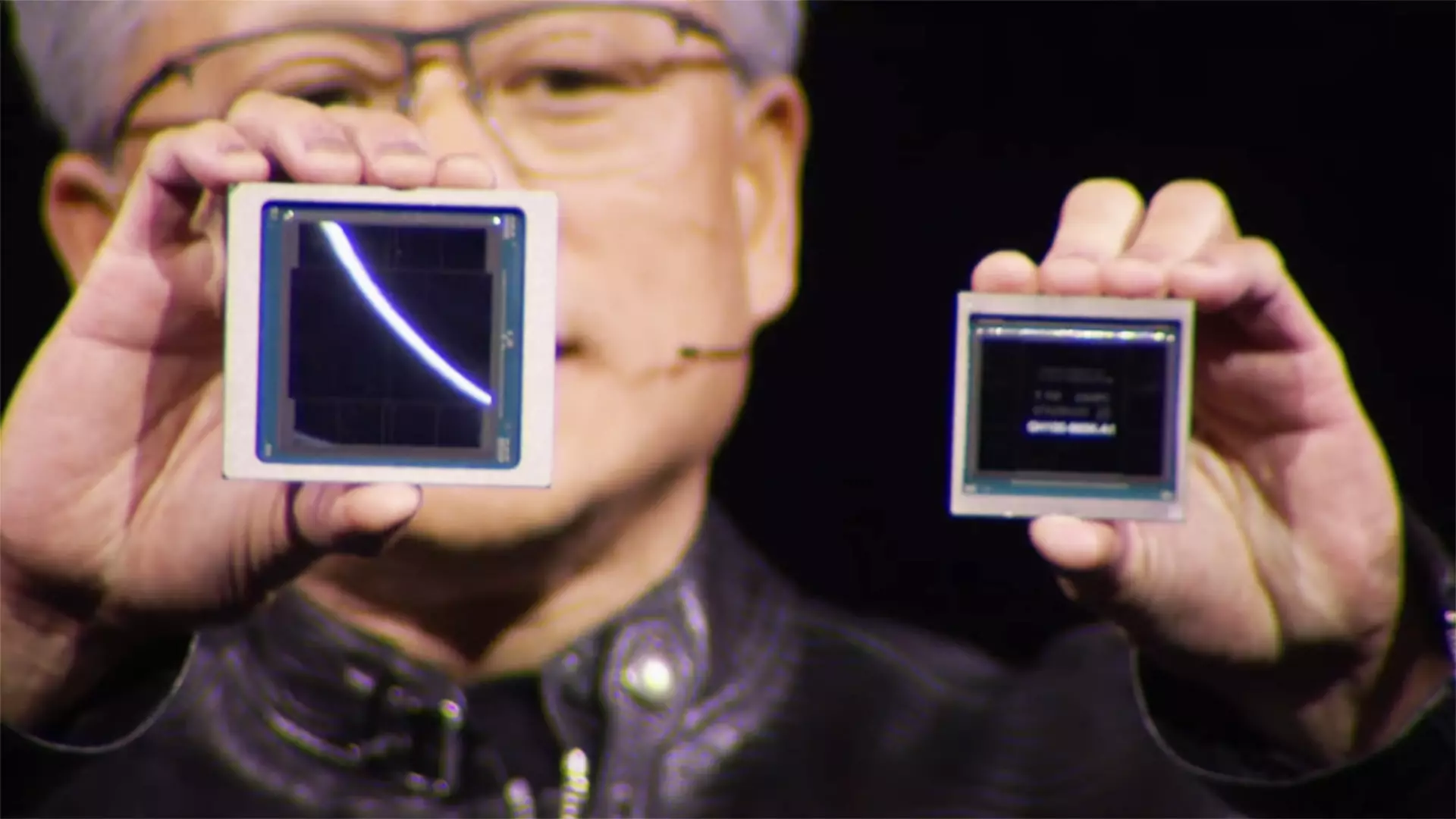The multifaceted relationship between the United States and China, particularly in terms of technological advancements, has seen a substantial deterioration over recent years. In this context, Nvidia, a titan in the GPU and AI space, has emerged as a vocal critic of the ongoing export restrictions imposed by the U.S. government on semiconductor technologies destined for China. This rhetoric is not merely posturing; it sheds light on a critical shift in the global AI landscape that could have lasting implications.
Nvidia’s chief scientist, Bill Dally, recently pulled back the curtain on an alarming trend: Huawei, the Chinese tech giant, is allegedly poaching ex-Nvidia AI experts in response to these export controls. Thus, the narrative that these restrictions are directly propelling China’s homegrown technological initiatives is becoming increasingly apparent. Dally’s remarks, although translated from a foreign language report, underscore a major pivot. The global landscape of AI researchers has reportedly seen a dramatic shift, with China’s share of top-tier researchers increasing from one-third in 2019 to nearly fifty percent today.
Deciphering the Implications of Export Controls
This rapid accumulation of AI talent within China presents geopolitical and business challenges that cannot be overlooked. Essentially, the U.S. restrictions serve as a double-edged sword, aiming to protect national interests while inadvertently solidifying China’s position in the AI arena. Without access to cutting-edge Nvidia technology, Chinese firms like Huawei are incentivized to advance their own chips and AI capabilities. Interestingly, Nvidia’s stance suggests that a more open approach to technology exchange could foster innovation on both sides, rather than stifling it.
Nvidia has been forthright about the financial implications of these export limitations. The company projected losses in the billions, underscoring the real-world consequences of policy decisions that may not take into account the complex dynamics of global tech. CEO Jensen Huang has been candid, stating that restrictions on their H20 chips could result in an $8 billion decrease in revenue for the second quarter. Such losses highlight an urgent need for dialogue on how to balance national security concerns with economic realities.
A Formidable Opponent Emerges
The implications of Huawei’s increased capacity to develop AI technologies cannot be underestimated. With access to talent and resources previously nurtured by Nvidia, Huawei is evolving into a formidable competitor. As Dally noted, the rise of home-grown AI solutions reflects not just a necessity but also an accelerated quest for technological independence, fundamentally altering the competitive dynamics of the global tech market.
Interestingly, this tension also reveals an underlying irony; as Nvidia positions itself as a victim of restrictive policies, it engages in recruitment strategies that similarly disrupt the labor market. The irony lies in Nvidia’s overtures to attract Taiwanese Semiconductor Manufacturing Company (TSMC) employees, suggesting that while they critique Huawei’s actions, they themselves are actively participating in a zero-sum game of talent acquisition.
Glimmers of Change: Rethinking Export Policies
The increasing resonance of Nvidia’s warnings raises pertinent questions about the trajectory of U.S. export policies. If the current course leads to the elevation of competitors like Huawei, then the restrictions may ultimately do more harm than good for U.S. interests. Shifting the focus from isolation to collaboration may yield better outcomes for the American tech industry.
As both an industry leader and a critic of export restrictions, Nvidia stands at a critical junction. The company’s future may well depend on whether policymakers can recognize the overarching ramifications of their decisions. Rather than retreating into a fortress mentality, a more adaptive approach could encourage healthy competition while preserving the innovative spirit that propels both nations forward.
In a world increasingly intertwined through technology, understanding and navigating these complexities is essential. As the battle for supremacy in AI heats up, companies like Nvidia face not just market pressures but also the challenge of shaping a new narrative that advocates for constructive engagement rather than isolationism. The next steps taken by both the U.S. government and tech giants like Nvidia will define the future of AI development—not merely within their borders but globally, affecting innovation ecosystems everywhere.

